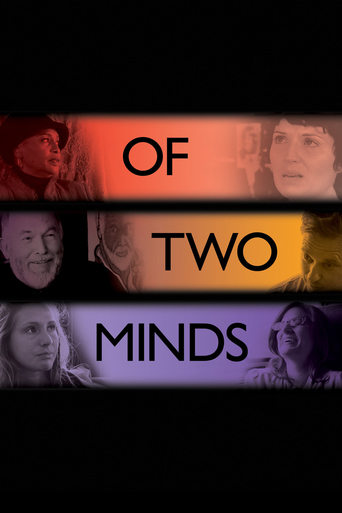Curapedi
I cannot think of one single thing that I would change about this film. The acting is incomparable, the directing deft, and the writing poignantly brilliant.
Delight
Yes, absolutely, there is fun to be had, as well as many, many things to go boom, all amid an atmospheric urban jungle.
annuskavdpol
A split personality, a personality of two entities. A division. Is that what bipolar is? Is bipolar a community treatment device or a locked in mental component to be treated on ER Wards? This movie takes the viewer into the lives of four individuals with a diagnosed serious mental illness. Each individual is unique. Their stories are unique and there is no dialogue between the four key players. Instead it is like each individual shares their own narrative with the camera in their own individualized fashion. This design of editing makes the parts of the whole a very structured whole. It is like tall skyscrapers reaching for the skies. The identities of each individual did come out and their unique identities versus the DSM label identities each did fall into an excellence. This movie is about recovery and exceeding societal expectations. It puts bipolar into a new light, one of humanity versus the sick role.
jetblacknewme
This is partially a response to SteveJ_888's review, as well as a review in its own right. I want to start out by stating that I have Bipolar Disorder. Like one of the women in this film, I started to get symptoms aged around 16, but did not get diagnosed until I was in my thirties. I was in the mental health system, but misdiagnosed many times, and so did not receive the appropriate medication, support or guidance. I have to disagree with Steve's theory of over-diagnosis of bipolar - at least here in the UK. It was very hard for me to finally obtain the correct diagnosis - and it has made all the difference to my quality of life. It can still be a struggle, even with the medication, therapy and support I have been offered. But I finally feel like I have at least some control over my mood swings.Steve also questions the storytellers' articulacy, education and success. But many, MANY bipolar people have made huge successes of their lives, and are very articulate and well-educated (see Stephen Fry et al.). This is in some cases directly DUE to the illness; mania or hypomania can make a person hugely productive, goal-oriented and full of all the energy required to fling themselves full pelt at tasks. It can also give you a special kind of creativity, where you can think outside the box in a way few others can (for example, the architect/artist in the film), as well as increasing your articulacy, persuasiveness and charisma. I feel this was actually well-covered in this film. It was also well-covered how the subsequent and inevitable depression can sap all of this and leave you unable to move or think or do anything at all except wish you were dead.I also find myself slightly offended by Steve's questioning of the veracity of the girl who had cut herself and passed out (I found this a harrowing and moving scene). Studies have shown that as many as 30- 50% of people with bipolar disorder will at some point self-harm, and have around a 15% suicide rate - which is about 30 times higher than the general population. That this woman tried to take her life is as certain as it is tragic. Of course it is possible to botch the job and cover it up. I have covered up some pretty bad self-injuries myself. Long sleeves were my friends.Steve questions the ultimate value of the film. In my opinion, it is to show bipolar people as they (we) really are. Anyone can read the science of the illness, the impersonal DSM-V or whatever, and form an opinion of what they think bipolar is or should be. But to watch this film, for me, it just rang true. I recognised so much of myself (not all flattering). I thought it was brave in that it explored such taboo areas as manic hypersexuality, which is a real and humiliating thing. It explored bipolar-bipolar relationships, which I have never seen documented before, and which is of particular interest to me as I myself am in such a relationship. The parts about depression were harrowing: to see the transformation of Cheri Keating (the make-up artist)from vibrant, energetic, talkative woman, to the grey shell of a person sitting by the fire, talking in a slow drawl, barely able to move - it was heartbreaking. Maybe it's harder to empathise if you haven't experienced it yourself? I don't know. I would still recommend this film to any of my friends and family if they wanted to better understand both the illness and me.Also, Steve (and anyone else): If you would like a really excellent, educational film about bipolar (starring such bipolar celebrities as Richard Dreyfuss and Carrie Fisher), I would heartily recommend 'Stephen Fry: The Secret Life of the Manic Depressive'.
Amy Reynaldo
This documentary introduces us to about five or six people living with bipolar disorder--and also to a couple others who lost their struggle with bipolar and committed suicide. It sounds terribly sad, right? But you will be utterly enchanted by the interesting, creative, funny people we meet. I found myself laughing more than I teared up.The filmmakers did a terrific job of highlighting an oft-misunderstood diagnosis. It's an optimistic movie--we see people thriving with bipolar, both with and without medication--but it is also realistic. The risk of suicide among persons with bipolar disorder is all too real, and that's not sugar-coated here.

